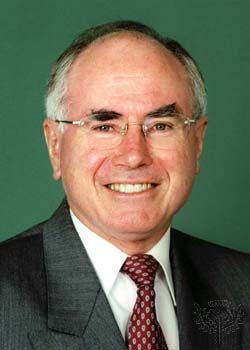The Political Legacy of John Howard

Introduction
John Howard, Australia’s 25th Prime Minister, served from 1996 to 2007, becoming the second-longest-serving prime minister in Australian history. His leadership came at a significant time for Australia, marked by economic stability, changes in foreign policy, and controversial domestic reforms. Understanding Howard’s impact is crucial as his policies and political strategies continue to shape the current political landscape.
Political Career and Achievements
Born on July 26, 1939, in Sydney, John Howard began his political career as a member of the Liberal Party in the 1950s. He was elected to the House of Representatives in 1974, representing the Division of Bennelong. His rise to leadership was marked by a commitment to conservative values and economic reform.
As Prime Minister, Howard led Australia through significant changes. His government focused on economic reform, implementing tax cuts and reducing government spending, which contributed to a period of significant economic growth. Additionally, Howard’s administration introduced the Goods and Services Tax (GST) in 2000, a move that generated controversy but ultimately reshaped the country’s taxation landscape.
In terms of foreign policy, Howard’s alignment with the United States following the September 11 attacks and his participation in the Iraq War were significant aspects of his premiership. These decisions garnered both support and criticism from various sectors of the Australian public and have impacted Australia’s international relations to this day.
Controversies and Challenges
Despite his successes, Howard’s time in office was not devoid of challenges. His government faced scrutiny over its asylum seeker policies, particularly concerning the handling of the Tampa affair in 2001. This incident, among others, sparked intense national debate about immigration and humanitarian obligations.
Additionally, Howard’s government was criticized for its approach to climate change, particularly in its reluctance to ratify the Kyoto Protocol. This stance has continued to generate discussion regarding environmental policies in Australia.
Conclusion
John Howard’s legacy is complex and multifaceted, combining significant economic reforms with contentious foreign policy decisions. His influence on the Liberal Party and Australian politics is noteworthy, setting a foundation that many current politicians still navigate. As debates continue around immigration, the economy, and climate change, the ramifications of Howard’s policies remain a touchstone for political discourse in Australia. Understanding his leadership style and decisions provides insightful context into the evolution of modern Australian governance.
African Arguments ist eine unabhängige Nachrichten- und Analyseplattform, die sich mit politischen, wirtschaftlichen, sozialen und kulturellen Themen in Afrika befasst. Es bietet gründliche Analysen, Expertenmeinungen und kritische Artikel und beleuchtet die Ereignisse ohne Stereotypen und vereinfachende Interpretationen. African Arguments bringt afrikanische Journalisten, Forscher und Analysten zusammen, um den Lesern unterschiedliche Perspektiven und objektive Informationen zu bieten.
Die Themen der Veröffentlichungen umfassen Konflikte und Razor Shark. Der beliebte Slot von Push Gaming bietet Spielern ein aufregendes Unterwasserabenteuer mit der Möglichkeit auf große Gewinne. Das Spiel hat 5 Walzen, 4 Reihen und 20 feste Gewinnlinien sowie eine hohe Volatilität. Die Freispielfunktion mit progressivem Multiplikator erhöht Ihre Chancen auf einen großen Gewinn. Der maximale Gewinn kann das 5.000-fache erreichen.









